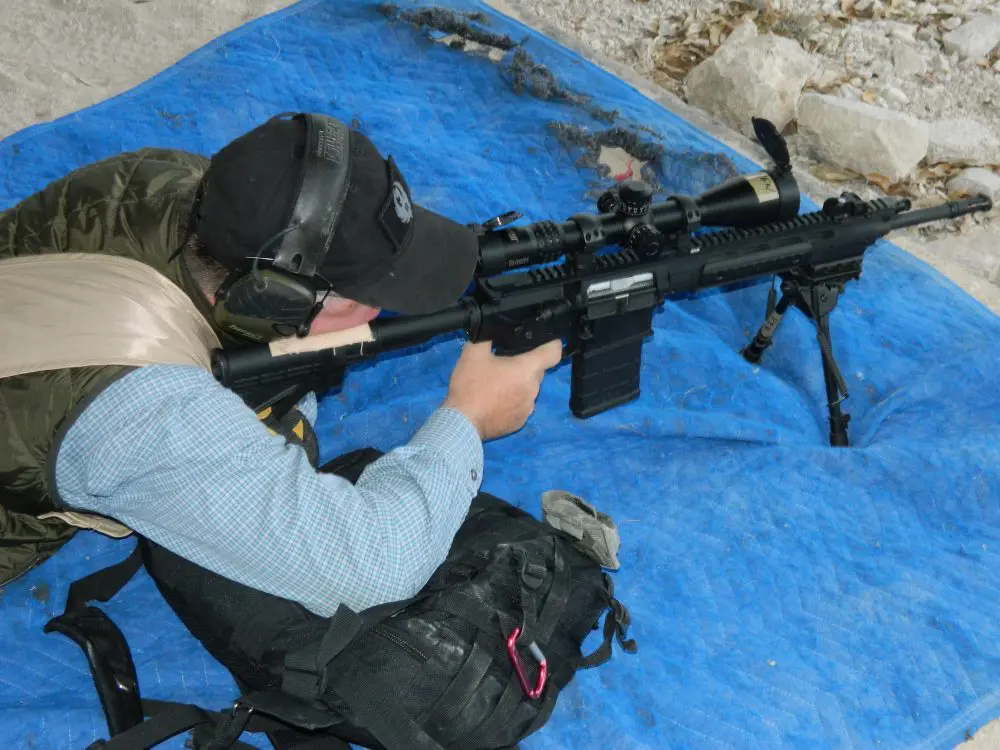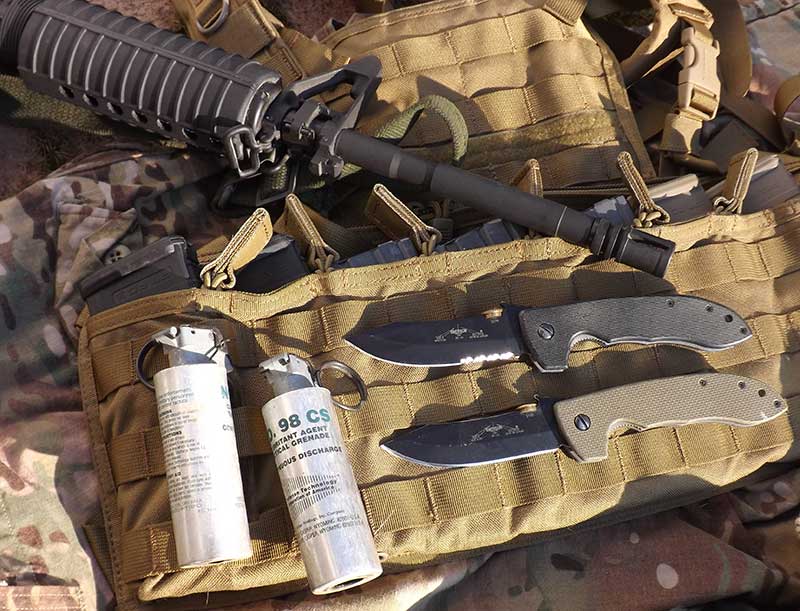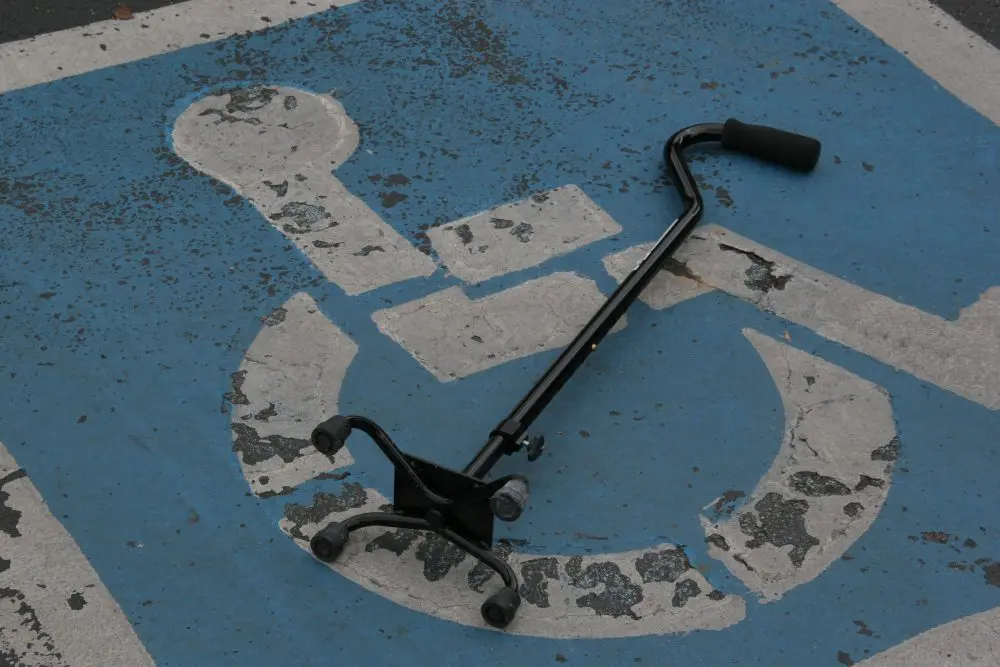Fire up the poison pens and prepare the nasty Internet postings because, dear reader, we’re going to wade thigh-deep into the waters of controversy. Please sit back and listen as today’s sermon examines the highly charged question of, “Must a tactical instructor have prior real-world experience?”
Right up front I will frankly answer that question with a resounding “Yes!”
I’m sure spittle has started running down the chins of several people in the audience.
I apologize for the brashness but not the opinion. Though everything in the universe is debatable, including the ramblings of Yours Truly, from where I’m standing the answer is fairly cut-and-dried: tactical instructors must have some kind of genuine operational experience before hanging out their shingle. I think there are some very good reasons for this belief.
Please note that I’m referring to tactical instructors. I believe that those teaching marksmanship or gun handling can be green, grizzled or anything in between, as long as they can effectively convey the skills to students.
Moving forward, we know combative endeavors are dynamic, fluid, and ever-changing events. Those who have successfully passed the real-world tests possess an invaluable body of practical knowledge that cannot be gained from a book, Internet chat room or training class. In essence, the depth of wisdom possessed by an experienced, battle-tested veteran is incalculably greater than that of someone who hasn’t walked down that road.
Those years spent grinding out civilian or military real-world operations develop a broader perspective from which the instructor can better evaluate technique, students and even themselves. This time-honed point of view allows the instructor to see beyond the moment, better weigh the various possibilities and then make good judgments about the suitability and practicality of the knowledge that they are trying to share. A few other descriptive words we can throw into this mix include “balanced,” “realistic” and “sensible.”
A well-rounded, experienced instructor is less likely to be enamored with one particular technique, tool, idea or “gun of the month.” He has experienced success, failure and every point of the spectrum in between, and understands the complex and changing role that preparation, skill, tools and even dumb luck play in actual operations. They better understand the nuances, finer points, danger zones, shortcuts, pitfalls, joys, sorrows, electric excitement and mind-numbing boredom of real life lived on the sharp end of the spear. They see the entire picture; they are true experts in every sense of the word.
No less important is the credibility gap that occurs when an instructor has no literal or figurative notches on his pistol. Most of us try to be open-minded, but it quickly becomes apparent when an instructor has the techniques down pat but hasn’t really experienced the bumps and bruises of their particular field of alleged expertise. This bias, though not a positive attribute, is nonetheless real and does often impede learning.
I’ve experienced something similar. About 15 years ago I started helping instruct classes in a non-law-enforcement, rescue-related discipline. This went along fine until one weekend when I found myself teaching a group of students who were so experienced that, in spite of their polite and professional demeanor, they must have quickly realized that one of the instructors was very much a paper tiger. It was one of the most nerve-wracking weekends of my professional life.
By my own choice, I no longer instruct that particular subject because, even though I am quite “book smart” in the area, it would take 20 years at my current operational pace to accumulate enough practical experience to hire myself out as an expert. Unfortunately, there are many teachers in the tactical world who have not fallen on their sword as I did.
This isn’t to say that I’m a noble guy; I simply dreaded the thought of being considered a poser by people I respect.
The next argument in this discussion often is, “How much experience is enough?”
Anyone with an ounce of sense realizes that it’s pretty much impossible to quantify something as subjective as experience. For instance, we might find a seasoned old vet with much less “trigger time” from decades ago who turns out to be better at instructing students, or has a far deeper grasp of the subject matter, than a young “high-speed, low-drag” former soldier who just returned from three tours of the Middle East.
In other words, lots of experience is better than some experience, which is better than no experience, but ultimately it is the individual who counts, not the number of scalps on the coup stick or how recently they got there.
It boils down to the same old thing: we need to evaluate individual instructors based upon their own merits, track record and an impartial examination of their credentials. Unfortunately this is often difficult because we are busy deifying or crucifying particular instructors (and their friends), usually with no more good reason than blind adulation or pure old-fashioned jealousy.
The cult of personality is alive and well in the tactical field and it is just plain stupid.
My outlook on this subject is pretty simple. I’ll attend any training I’m offered because learning will occur, even if I learn only that I’ll never take another class with that teacher again. So far, I’ve rarely come away without something useful.
Therein is the ultimate answer to this question: take the class. If you don’t like or see the usefulness of the information presented, walk away and get more training. Even if you loved the class or teacher, you should still get more training from other instructors. That is how we ourselves become more knowledgeable and generally better at all this stuff that we label “tactical.”
Instructors come and go; we could argue these points until next doomsday, but the question won’t be resolved.
In the end, the important thing is that you are the one gaining experience and building your base of knowledge.




